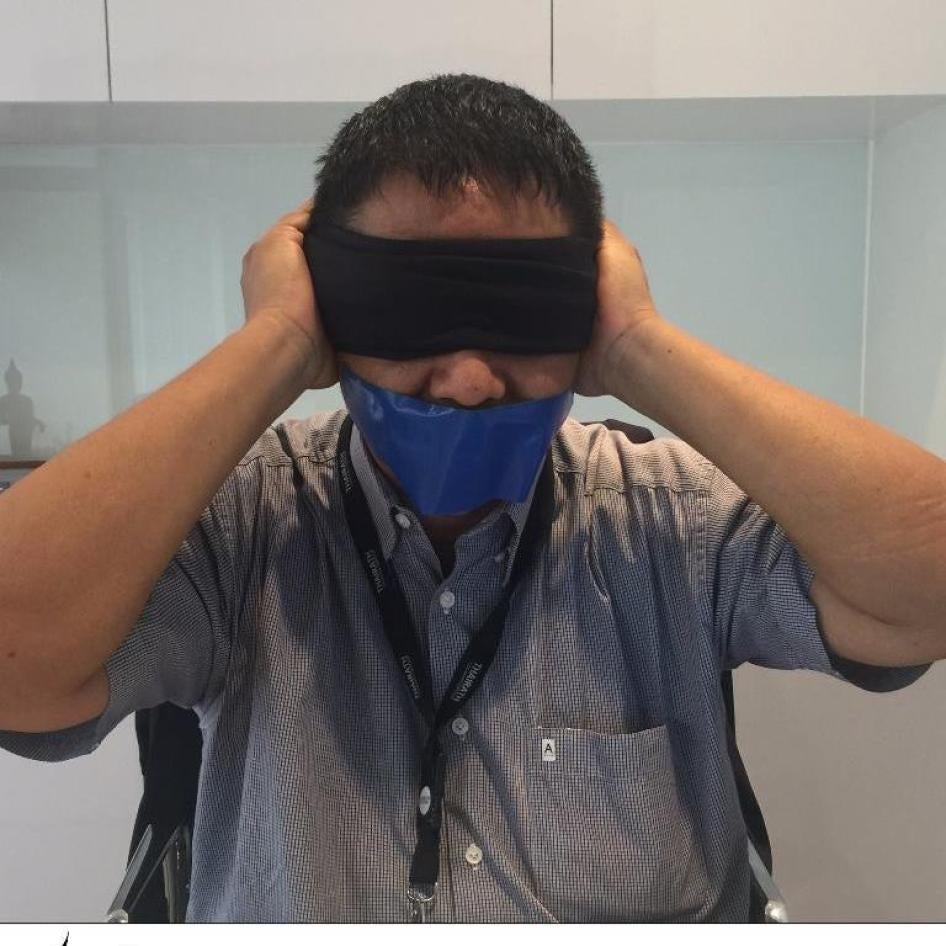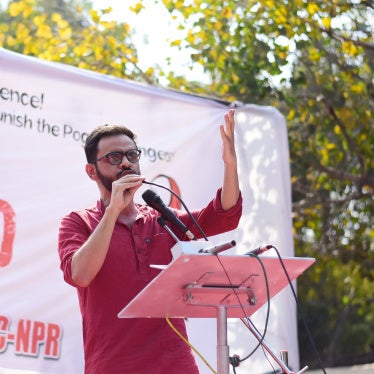(New York) – The Thai government should immediately withdraw the latest draft law that seeks to tighten control of news reporting in Thailand, Human Rights Watch said today. The Media Reform Committee at the National Reform Steering Assembly (NRSA), whose members are appointed by the military junta, announced that the NRSA will consider the bill on May 1, 2017.
The Bill on the Protection and Promotion of Media Rights, Freedom, Ethics and Professional Standards provides for a government-appointed national media council to regulate all media platforms – print, broadcast, or online. It also subjects anyone who directly or indirectly earns income from reporting news to the public without a license – and their company, agency, or organization – to up to three years in prison and a 60,000 baht (US$1,715) fine.
“The misnamed media rights and freedom law is the junta’s latest attempt to increase government interference and control of any independent news reporting,” said Brad Adams, Asia director. “Passage of this draft law would mean that reporters in Thailand will be constantly looking over their shoulder at a government-appointed panel that can have them jailed.”
More than 30 media organizations in Thailand – including the Thai Journalists Association, the Thai Broadcast Journalists Association, the National Press Council of Thailand, the News Broadcasting Council of Thailand, the Online News Providers Association, and the Thailand Cable TV Association – have expressed strong concerns that the proposed law would invite government interference in the media and prompt journalists to censor themselves to avoid potential reprisals – including the threat of having their licenses revoked.
The ruling National Council for Peace and Order (NCPO) under Prime Minister Gen. Prayut Cha-ocha has frequently pledged that it will respect freedom of expression and independence of the media. The government reiterated this pledge most recently in March at the United Nations Human Rights Committee during the review of Thailand’s rights record. However, the junta’s record on freedom of expression has been poor. Thai authorities have repeatedly harassed and prosecuted people for their speech, writings, and internet postings even mildly critical of the government.
Immediately after the May 2014 coup, the junta forced off the air satellite and digital TV channels and community radio stations associated with all political factions. Some were later allowed to resume broadcasting provided that they signed a memorandum of understanding with the junta that the broadcaster would not make any critical comments about the junta or the situation in Thailand.
The junta has maintained media censorship through various decrees. NCPO Announcement 97/2014 bans “criticism of the work of the NCPO” and the dissemination of “information that could harm national security, cause confusion, or incite conflict or divisions in the country.” All news outlets are compelled to distribute the information issued by the junta.
NCPO Announcement 103/2014 prohibits the propagation of news or the distribution of any publication containing information that the authorities consider “intentionally distorted to cause public misunderstanding that affects national security or public order.” This has effectively turned the National Broadcasting and Telecommunications Commission (NBTC) into a censorship tool for the junta, with broad and unaccountable powers to suspend the broadcast of TV and radio programs or take a station off the air because of content that the authorities consider distorted, divisive, or a threat to national security.
“The proposed media law is taking Thailand even further away from the junta’s promised election and restoration of democratic rule,” Adams said. “Instead of adopting another repressive law, the government should lift censorship and the rights abusing regulations that are destroying free expression in Thailand.”









